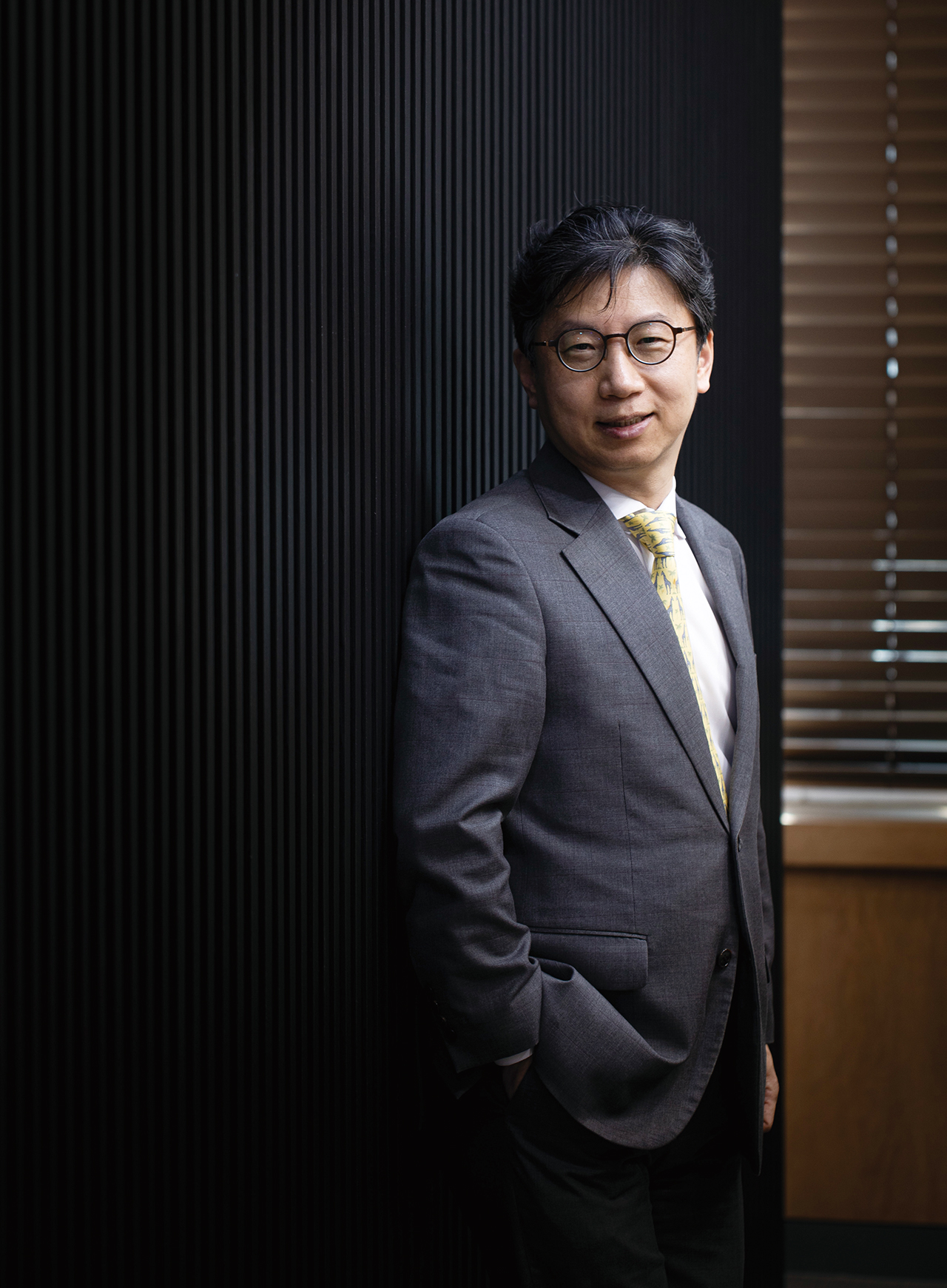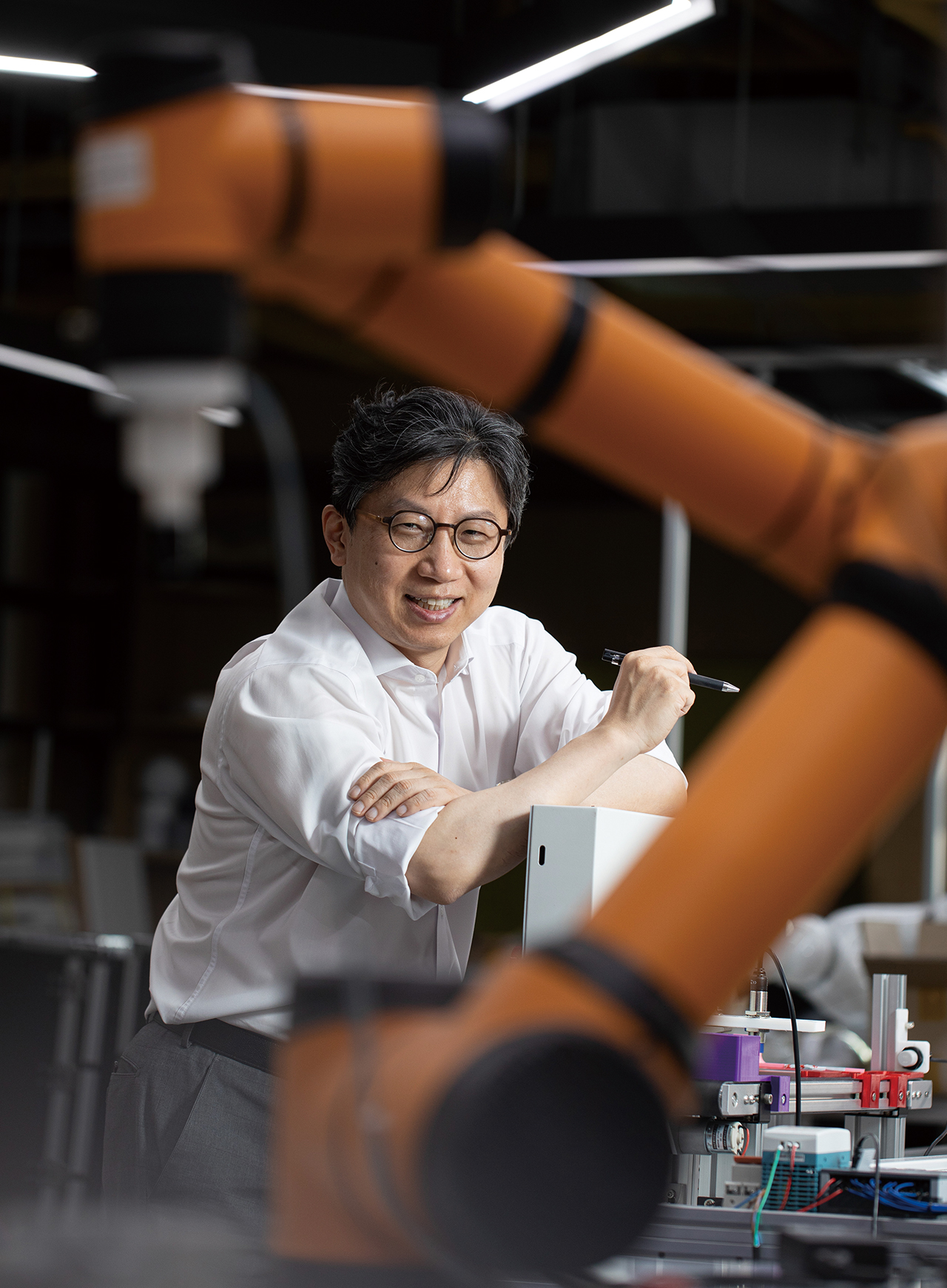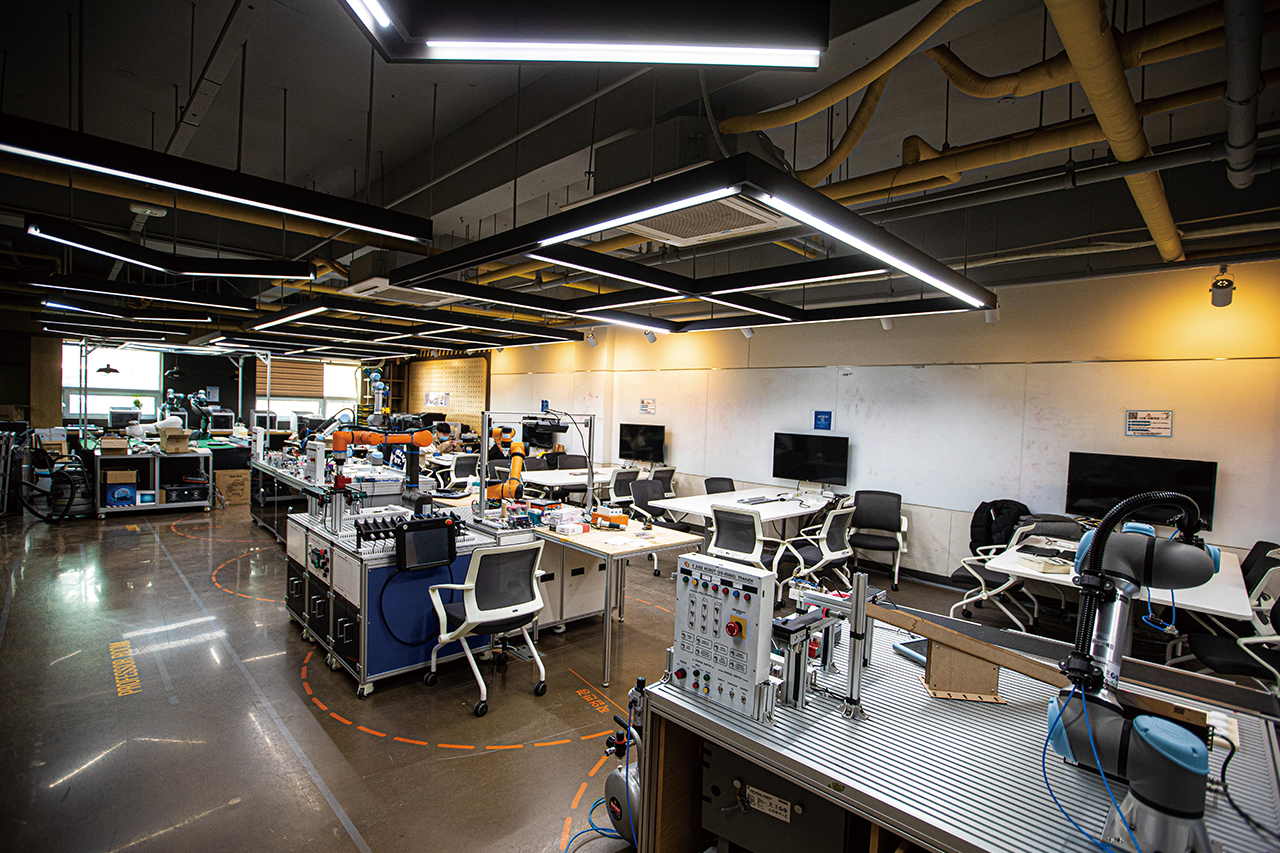6년간(2021~2026년) 진행되는 ‘디지털 신기술 인재양성 혁신공유대학’ 사업은 지능형로봇, 에너지신산업, 바이오헬스, 차세대반도체, 미래자동차, 인공지능, 빅데이터, 실감미디어 콘텐츠 분야의 인재를 양성하는 사업이다. 이른바 4차 산업혁명 시대의 신기술로 각광받는 분야들이다. 그런데 분야별로 7개 대학이 연합체를 이루는 점이 특이하다. 지역분배를 고려해 구성된 연합체는 표준화된 교육과정을 공동으로 개발·운영하는 등 대학별로 흩어져 있는 해당 분야의 교육자원을 공동 활용하는 혁신을 도모하고 있다.
한양대는 서울캠퍼스가 에너지신산업 분야에 참여할 뿐 아니라, ERICA캠퍼스가 광운대, 부경대, 상명대, 영진전문대, 조선대, 한국공학대로 구성된 지능형로봇 혁신공유대학 사업단(이하 ‘지능형로봇 사업단’)의 주관대학으로 선정됐다. 지능형로봇 사업단의 수장인 박태준 단장은 교육도 4차 산업혁명 시대의 흐름에 맞게 바뀌어야 한다고 강조했다.
“4차 산업혁명 시대에 접어들면서 사회의 전 부문이 바뀌고 있는데 대학이라고 상아탑이라는 옛 명성에만 매여 있으면 도태될 수밖에 없습니다. 이미 온라인으로 학위를 받을 수 있습니다. 물리적 공간 개념의 대학은 이미 변화를 맞았죠. 구글 같은 기업은 대학을 제치고 직접 AI 교육을 하겠다고 나선 상황입니다.”
4차 산업혁명 시대의 도래는 대학에 위기로 작용할 수 있다. 그렇다면 대학교육은 어떻게 바뀌어야 할까. 그 방향성을 고민할 시점이다.
“4차 산업혁명 시대의 주요 키워드로 개방, 공유, 협업, 연대를 꼽을 수 있습니다. 이번에 선정된 8개의 신기술 분야는 단독 학문으로 발전시킬 수 있는 분야가 아니에요. 예를 들어 지능형 로봇은 기계, 전자, 인공지능 등 다양한 분야가 융복합된 학문이므로 학교와 학과의 장벽을 허물어야 효율적으로 우수한 인재를 양성할 수 있습니다.”
만약 한 학과에서 해당 분야를 완벽히 교육하려면 세부 전공별로 교수를 확보해야 하는 어려움이 있다. 하지만 여러 대학이 연합해 공동 커리큘럼을 운영하면 적은 교육자원으로도 효과를 높일 수 있다. 학생 입장에서는 어느 지역, 어느 대학에 다니든 표준화된 교육을 받을 수 있게 된다. 이를 통해 지역 간, 대학 간 교육 격차를 해소하는 데도 기여할 수 있다.
The “Innovation Sharing University for New Digital Technology Talent Training” project aims to nurture talents in the fields of AI-robotics, new energy industry, bio and health, next-generation semiconductors, future automobiles, artificial intelligence (AI), big data, and realistic media content (virtual reality and augmented reality), for six years from 2021 to 2026. Those fields are spotlighted as “new technologies in the Fourth Industrial Revolution era.” What makes the project special is that seven universities form a coalition to carry out a joint project in each field. The coalitions, formed in consideration of regional distribution, are seeking innovation, finding a way of sharing educational resources of the fields scattered around the universities by jointly developing and operating standardized curriculum.
Both campuses of Hanyang University participate in the project: Seoul Campus participates in the field of the new energy industry, and ERICA Campus has become the leader of the Shared AI-Robotics Education (“SHARE”) school with other participating universities including Kwangwoon University, Pukyong National University, Sangmyung University, Yeungjin University, Chosun University, and the Tech University of Korea. Prof. Park Taejoon, Director of the SHARE, stresses that education needs to be changed in line with the streams of the Fourth Industrial Revolution.
“As we are entering the age of the Fourth Industrial Revolution, all areas of society are changing accordingly, and thus, universities need to break away from the image of an “ivory tower” to avoid falling behind. People can already get college degrees online. The concept of university is already changing in terms of physical space. Companies like Google offer AI courses as universities do.”
The advent of the Fourth Industrial Revolution could threaten the existence of universities. Then, how should university education change? It is time to think about the direction it should head towards.
“The keywords of the Fourth Industrial Revolution are openness, sharing, collaboration, and solidarity. The eight new technologies selected for the project cannot be developed as an independent field of study. For example, AI-robotics is a convergence of various fields including mechanical and electronic engineering, and AI, and therefore, breaking down barriers between university and departments is required to effectively cultivate talented people.”
If a single department alone teaches one of the convergent fields, it would be difficult to secure professors of all majors included in the field. But joint curriculum developed and run by various universities can offer more effective education with fewer resources and allow students to get standardized education in any region or at any university. And this can also contribute to bridging the gap between regions and between universities.





